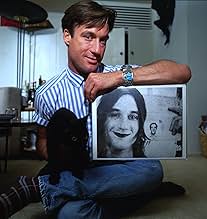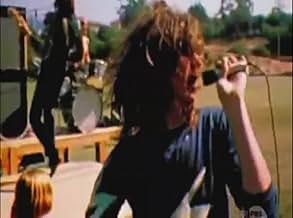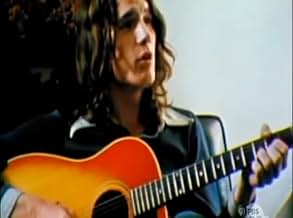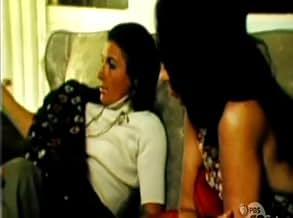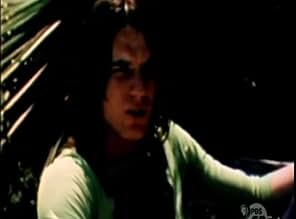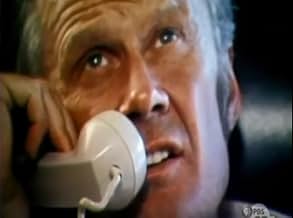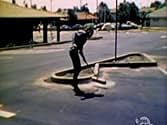Follows the real lives of the Loud family, a motley group of suburbanites.Follows the real lives of the Loud family, a motley group of suburbanites.Follows the real lives of the Loud family, a motley group of suburbanites.
Browse episodes
Featured reviews
God I wish this was available on DVD or video, I remember seeing it years ago on PBS, late at night, just came upon it by accident and was completely hooked. It was truly fascinating. The 70's were so strange and interesting, and this is the real deal, real life. The quintessential portrait of an American Family at an interesting time in history. Series like this should be well preserved and available for future generations, it's a tragedy.
An early version of the peek and see webcams of today like MTV's original'Real World' and 'Jennicam', the William Loud family of Santa Monica California allowed a television crew [PBS] to set up a camera and photograph >the Loud family in their daily activities barbeques, sibling hassles, petty squabbles between Pat Loud and her husband Bill, it was certainly a very unusual thing, this documentary it was sort of like peeking over your neighbor's fence and spying on them...a most unusual television production!
Regardless of the ethics involved, you have to give credit to that Gilbert guy for coming up with the concept. Also, apparently he did explain in an introduction that this family is not representative of a typical American family. They are simply AN American family.
Having said that, what a depressing lot. The man with the "old-school" values of work and responsibility is portrayed as the square, and the outrageously spoiled wife and kids are the "cool" ones.
What is most shocking is how the kids and the wife are totally disassociated from the source of their material comfort. They have no sense that someone is working to attain all this. Although the dad makes attempts to teach them a work ethic, he is to blame almost as much as the mom, for not instilling the right values in the kids when they were much younger.
The kids' lives revolve around pop-culture and self-gratification. There's no God, no volunteerism, no work, and ironically, no American identity.
O.K. so the dad has been having affairs. Apparently the mom had one too. But she had such little regard for his hard work or values that she became a turn-off. But of course there's more to all that. This guy was very masculine and virile, and those types of alpha-males do often get tired of eating the same meal every night, metaphorically. They have voracious sexual appetites and egos to stroke.
The other kids seemed to worship their gay older brother. Yet in reality he was nothing more than a spoiled, lazy queen. What a loser. He was so full of himself too. He thought he was so unique and that he had outgrown the provincialism of Santa Barbara. But ultimately he crashed and burned elsewhere too. Even in Paris. The problem was him, not a place.
By the way, do all young gay men embrace drag queen culture and extreme flamboyance when they come out? I doubt it.
The makers did what they could. They focused on the two most compelling or sensationalistic aspects of the family. Those were the breakup and the gay kid finding himself.
Whether they meant to or not, what they really showed was how the relative affluence of American life can alienate people from and binding core-culture traditions.
Having said that, what a depressing lot. The man with the "old-school" values of work and responsibility is portrayed as the square, and the outrageously spoiled wife and kids are the "cool" ones.
What is most shocking is how the kids and the wife are totally disassociated from the source of their material comfort. They have no sense that someone is working to attain all this. Although the dad makes attempts to teach them a work ethic, he is to blame almost as much as the mom, for not instilling the right values in the kids when they were much younger.
The kids' lives revolve around pop-culture and self-gratification. There's no God, no volunteerism, no work, and ironically, no American identity.
O.K. so the dad has been having affairs. Apparently the mom had one too. But she had such little regard for his hard work or values that she became a turn-off. But of course there's more to all that. This guy was very masculine and virile, and those types of alpha-males do often get tired of eating the same meal every night, metaphorically. They have voracious sexual appetites and egos to stroke.
The other kids seemed to worship their gay older brother. Yet in reality he was nothing more than a spoiled, lazy queen. What a loser. He was so full of himself too. He thought he was so unique and that he had outgrown the provincialism of Santa Barbara. But ultimately he crashed and burned elsewhere too. Even in Paris. The problem was him, not a place.
By the way, do all young gay men embrace drag queen culture and extreme flamboyance when they come out? I doubt it.
The makers did what they could. They focused on the two most compelling or sensationalistic aspects of the family. Those were the breakup and the gay kid finding himself.
Whether they meant to or not, what they really showed was how the relative affluence of American life can alienate people from and binding core-culture traditions.
I happened to stumble across An American Family one day, and I thought it was really fascinating. Before seeing this, I had no idea camera crews filming people's unscripted interactions existed prior to the early 2000s, so this is technically the first reality show. Who would've thought it'd turn out to be this moneymaking, human exploitation, manufactured drama of a machine that it is. People nowadays love to escape from their issues by pointing and laughing at the misfortunes of others, whether it's a person whose house resembles a landfill because they're a compulsive hoarder, litigants arguing in small claims court, or amateur cooks getting yelled and screamed at by a world class chef. I think judging and criticizing individuals with various problems gives folks comfort in a way, because it makes them feel like "well at least my life isn't that bad!" Reality television has led to society becoming increasingly hypocritical. An American Family is quite mild compared to the nastiness and backstabbing that's on our screens in this day and time but it was more or less a precursor of what was to come.
During the early 70s, people tuning into PBS were treated to the daily conversations and activities of the Louds, a family living in Santa Barbara. Bill and Pat were parents to 5 children - Michelle, Delilah, Grant, Kevin, and Lance - who ranged in age from mid to late teens. The issues and arguments they had are pretty much the same to what parents and teenagers are having/dealing with in the current time, so that is intriguing in a sense, to see how generations have similar challenges, but otherwise, just like reality TV now, it reaches a point where it gets incredibly boring to just watch people talking to each other. The Louds really aren't interesting or unique. Many of us have seen them before, either in a fictional sense, or maybe we had friends who lived in a family who was like this: unhappy couple often considering divorce, kids just doing whatever they want, one step away from getting hooked on drugs - but they all look normal on the outside, because they're financially comfortable. The husband/father is a lawyer, doctor, engineer, gives his wife anything she wants, children have all of their needs met, but the routine dinner parties and the smiles on the yearly Christmas photo hide a dark secret - that everybody is miserable. People were expecting this show to be something groundbreaking and fresh, but it actually hit too close to home.
On one hand, it was debatable as to whether or not the Louds were typical. They were Caucasian, had a large house, and owned several cars. It was actually quite ridiculous to market this white, rich, west coast family as being representative of families all over the entire US. But on the other hand, perhaps they were reflective of what the country was going through at the time - the aftermath of the Vietnam War, and fallout from the destabilization and controversy that was brought on by the hippie phenomenon. Regardless of whichever reaction people had, they either couldn't relate to them, or they related too much. I imagine the former was unsettling.
It's a cool relic and everything, but I couldn't sit there and watch them conversing for longer than 10 minutes. The kids sort of reminded me of how teenagers are now, talking back, sharing how they feel, etc., and it starts to not even be a conversation anymore, but a debate. I'm sure in 1973, that type of exchange between adults and kids was considered inappropriate. I can't speak from experience, because I was born 20 years after this came on TV, but I've always heard and read comments on the internet from boomers saying how when they were growing up, it wasn't acceptable for children to voice their opinion after their parents told them to do something, so the Louds were truly representing the affluent population of California, because that wouldn't have been tolerated anywhere else. I really don't care all that much what anyone's talking about in their home, so the fly on the wall concept is lame to me. The only people who seek out stuff like that are just nosy. If you love archival material, history in general, or you're a reality show fan and you wanna see the earliest adaptation, you'll love this. Otherwise, it was quite uneventful, for me anyway.
During the early 70s, people tuning into PBS were treated to the daily conversations and activities of the Louds, a family living in Santa Barbara. Bill and Pat were parents to 5 children - Michelle, Delilah, Grant, Kevin, and Lance - who ranged in age from mid to late teens. The issues and arguments they had are pretty much the same to what parents and teenagers are having/dealing with in the current time, so that is intriguing in a sense, to see how generations have similar challenges, but otherwise, just like reality TV now, it reaches a point where it gets incredibly boring to just watch people talking to each other. The Louds really aren't interesting or unique. Many of us have seen them before, either in a fictional sense, or maybe we had friends who lived in a family who was like this: unhappy couple often considering divorce, kids just doing whatever they want, one step away from getting hooked on drugs - but they all look normal on the outside, because they're financially comfortable. The husband/father is a lawyer, doctor, engineer, gives his wife anything she wants, children have all of their needs met, but the routine dinner parties and the smiles on the yearly Christmas photo hide a dark secret - that everybody is miserable. People were expecting this show to be something groundbreaking and fresh, but it actually hit too close to home.
On one hand, it was debatable as to whether or not the Louds were typical. They were Caucasian, had a large house, and owned several cars. It was actually quite ridiculous to market this white, rich, west coast family as being representative of families all over the entire US. But on the other hand, perhaps they were reflective of what the country was going through at the time - the aftermath of the Vietnam War, and fallout from the destabilization and controversy that was brought on by the hippie phenomenon. Regardless of whichever reaction people had, they either couldn't relate to them, or they related too much. I imagine the former was unsettling.
It's a cool relic and everything, but I couldn't sit there and watch them conversing for longer than 10 minutes. The kids sort of reminded me of how teenagers are now, talking back, sharing how they feel, etc., and it starts to not even be a conversation anymore, but a debate. I'm sure in 1973, that type of exchange between adults and kids was considered inappropriate. I can't speak from experience, because I was born 20 years after this came on TV, but I've always heard and read comments on the internet from boomers saying how when they were growing up, it wasn't acceptable for children to voice their opinion after their parents told them to do something, so the Louds were truly representing the affluent population of California, because that wouldn't have been tolerated anywhere else. I really don't care all that much what anyone's talking about in their home, so the fly on the wall concept is lame to me. The only people who seek out stuff like that are just nosy. If you love archival material, history in general, or you're a reality show fan and you wanna see the earliest adaptation, you'll love this. Otherwise, it was quite uneventful, for me anyway.
One of the key aspects that makes this series compelling is the director's insistence that it somehow adheres to strict rules (if such are even theoretically possible) of cinema Veriee. So much of the "reality" we observe in this precursor to the current deluge of reality shows is very subtly contrived. Given the fact that Pat and Bill were on the outs well before the series started, plus the fact that Lance had already come out, much the seemingly real-time tension viewers experience is really quite contrived in much the same manner as a scripted soap opera. The show--even in all of its heavy handed scandal-mongering--does illustrate the strains present in many modern nuclear families and does elicit much interest if only for the fact that it captures the strange transition between the spontaneous daily drama of life as seen from a fly on the wall and the media's shaping of such drama to suit its own thesis. By watching Lance, who even goes so far as to tip off the audience by self-consciously parodying his on-stage persona, we can readily observe the innocent wonder years of PBS well before it grew into the great dictator of perception that it is today.
Did you know
- TriviaThe creation and production of "An American Family" is dramatized in the 2012 Hollywood film "Cinema Verite (2012)" (which is named for the technique of filming a movie to convey candid realism).
- ConnectionsFeatured in Television: The Rise and Fall of the Documentary (1985)
- How many seasons does An American Family have?Powered by Alexa
Details
- Runtime
- 12h(720 min)
- Color
Contribute to this page
Suggest an edit or add missing content

